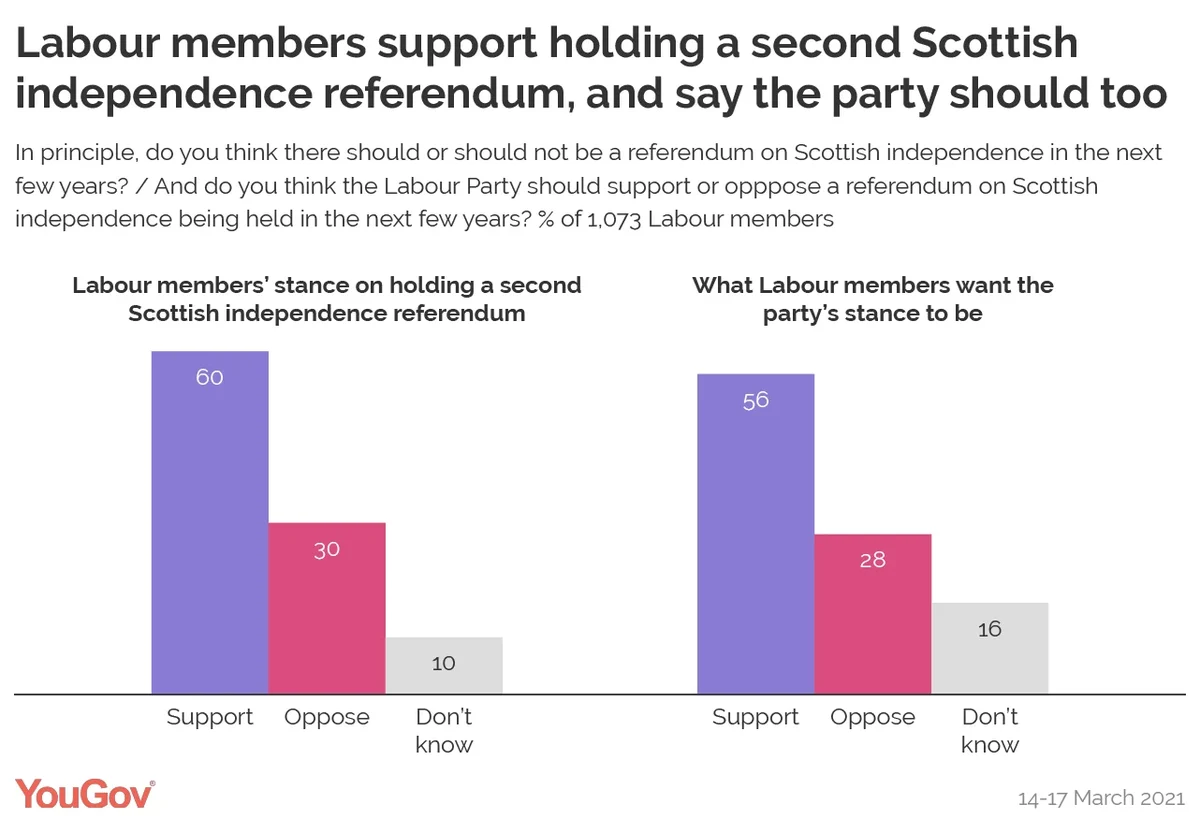One in three think Scotland should be an independent country
It is now over 20 years since a Labour government passed the Scotland Act, establishing the Scottish Parliament and devolving certain powers to MSPs. Now, after a surge in support for Scottish independence, the Labour party remains reluctant to support a second referendum, instead supporting further devolution of powers in an attempt to save the union and bolster Labour’s election chances.
However, it seems that the views of the membership are not in line with that of the leadership. A recent YouGov poll of Labour members Britain-wide finds that a majority support the idea of Scotland having a second independence referendum (60%), and also believe that the party should support holding such a referendum (56%).

Status quo, further devolution, or independence?
When it comes to Scotland’s status, the membership are heavily divided. A third (31%) believe Scotland should be an independent country. A little less than that, 28% believe that the Scottish parliament should be given more powers, while 27% think that the Scottish parliament should retain the powers it currently has but not gain any more from Westminster.
Just 4% think that there should be no devolved government in Scotland, and only 2% believe the Scottish parliament should have fewer powers.
A majority of Labour members support the Scottish parliament having jurisdiction over all domestic policy
Currently, the Scottish Parliament has jurisdiction over health, education, justice, rural affairs, housing, environment, transport and some aspects of taxation. Some have proposed that Labour should support devolution max extending these powers significantly. Under this arrangement, Holyrood would control all domestic powers in Scotland only sharing responsibility for defence and foreign affairs with the UK government.
When we asked Labour members about where individual areas of policy should sit, we found that a majority believe the Scottish Parliament should have control over all the areas of domestic policy we asked about, but most did not believe that the Scottish government should control non-domestic policy. Four-fifths (83%) believe the Scottish government should have control over education, 71% over welfare benefits, 70% over health and the NHS and 64% over taxation.
Support for Scottish control over their own non-domestic policy however was not as high. Half of members (49%) believe the Scottish government should have control over immigration, while 44% believe this should instead sit with the UK government.
On the issue of international trade, only 29% believe that the Scottish government should have control, with the majority (63%) believing it should remain under the control of the British government. The vast majority believe defence (72%) and foreign policy (71%) should remain under the control of the UK government.










